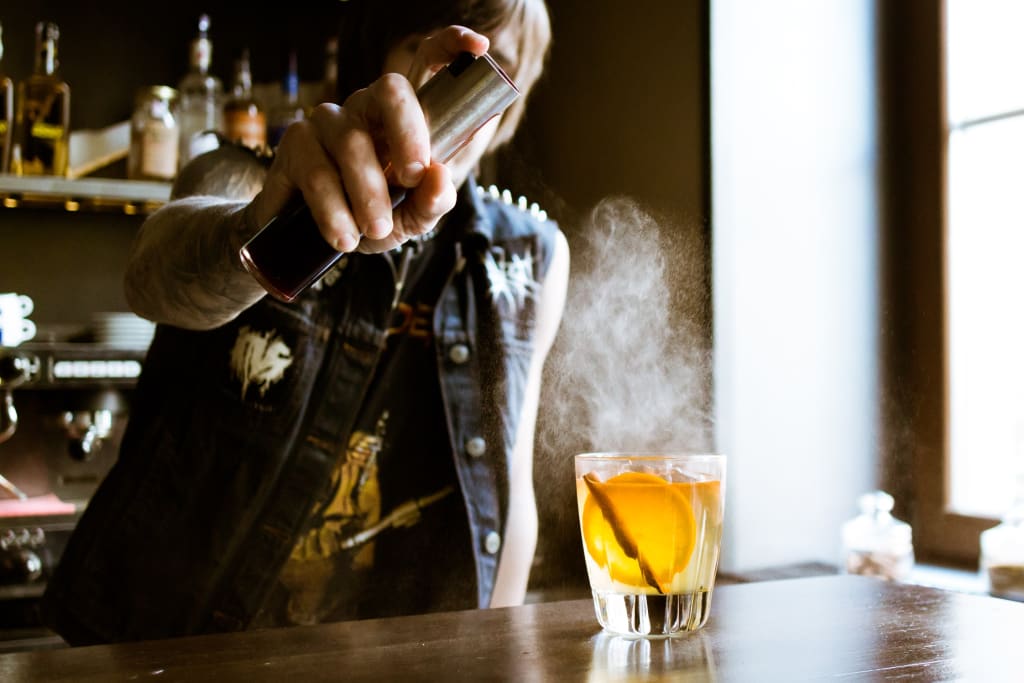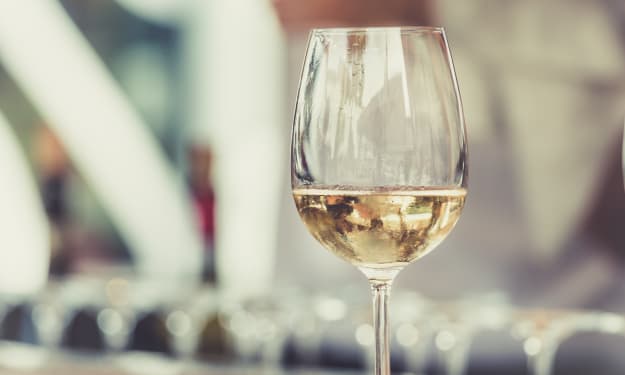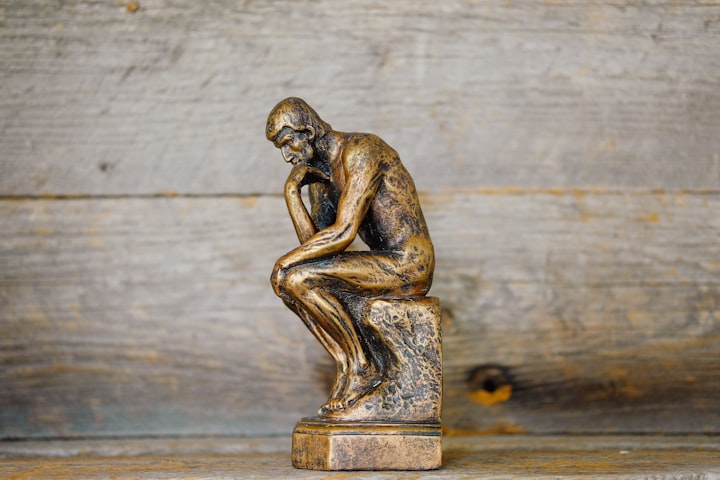Top Shelf Cures
The Medicinal History of Brandy

When I was six or seven, my parents went out to celebrate an anniversary and left our grandmother to watch my brothers and me. Grandma Jean is British, and when I was little I loved this the most about her. She brought chocolate Smarties and Noddy books back for us in her luggage and made us afternoon tea. I spent so much time reading British books, in fact, that I was often corrected at school for using a ‘u’ in the word 'color.'
The night my parents were away I started to come down with a cold and my throat was sore. Instead of taking me to the medicine cabinet in the bathroom, Grandma Jean took me to the liquor cabinet in the kitchen. There I learned what I thought was just another British tendency-- A shot of brandy to cure and soothe my sore throat. I had heard of stranger things. My grandfather on my mother’s side, for example, is a Polish immigrant and told us his father used to urinate on socks and wrap them around his neck to cure a sore throat. Naturally, I agreed to the brandy. She poured a small measure into a metal jigger and made me swallow. It was my first taste of alcohol and though it burned all the way down, I didn’t hate it.
While this is a favorite story of mine to tell whenever anyone is ill, I have always been skeptical of the actual health benefits of brandy. Since that night, I have come to learn that many families from all nationalities swear by brandy as an aid to suppressing symptoms of the common cold. The history of brandy as medicine goes all the way back to the 6th century, when the Persian Shah Khosaru established a medical school in Gunde Shapur. From that time on through the early 1600s, brandy was used as a remedy for everything from fainting to indigestion. Medieval travelers even carried it with them for energy--much like we carry vodka red bulls with us when we’re trying to rally at the bar at 2 am.
Recipes for brandy changed and traveled from Persia to Europe, but its medical uses remained. The first person to give structure to the health benefits of brandy was a Franciscan Friar named Vital Dufour. Clearly quite valued, his book is stored in the Vatican to this day. The book lists 42 health benefits of drinking brandy including: healing paralysed limbs, giving courage to the faint of heart (still in use today), and my favorite, restoring memory. Even as the western world shifted from a focus on magic to science, brandy remained a favorite prescription.
According to Brandy: A Global History by Becky Sue Epstein, the medicinal uses of brandy by licensed professionals lasted into the earlier half of the 20th century. Meaning that my grandmother’s dosage for me at the age of seven was slightly (ok, very) out of line with what doctors in the early nineties were prescribing for colds. But in her defense, brandy was classified as medicine through most of American Prohibition, at the end of which she was born. And cognac was the only liquor allowed to be imported into the US during the ban on alcohol because of its medicinal qualities. If she had given me a shot of tequila, then we’d have a different story altogether. Brandy was, as Epstein writes, “considered as much a part of a household medicine kit as Band-Aids are today.”
Surprisingly, the use of brandy and other alcoholic beverages was not reserved for the poor or unfortunate, but used universally from royalty on down. Prince Albert, the husband of Queen Victoria, was one of the last people to be treated with a “heroic cure”, or what many of us would call a particularly rough weekend. A heroic cure was the use of large amounts of alcohol to heal certain stomach related ailments. In Prince Albert’s case, he was prescribed six pints of brandy per day to defeat his waterborne sickness. (Ultimately he would die, but he was most certainly lit the last few days of his life, as I would like to be when I pass.)
Across the pond at this time, American presidents were getting toasty with their doctors’ help as well. And before you even start to wish you would have been born 150 years ago, take into consideration the following presidential deaths alone.
- James K. Polk who, according to the book Mint Juleps with Teddy Roosevelt, received an “extremely primitive, intrusive, and painful” urinary stone operation that may have left him both impotent and sterile. The only anesthetic he received during this nasty surgery? A couple of pulls of brandy, of course.
- James Garfield suffered a similar fate when, after he was shot in the ribs, his doctors prescribed him what I can only assume tasted like Jungle Juice: brandy, rum, claret, and whiskey. He drank these while they actively dug around inside of him for the better part of a month looking for a bullet. They would eventually find the bullet during his autopsy. It was hiding behind his spleen.
- Ulysses S. Grant, dying from throat cancer, was injected with brandy and dosed with cocaine to ease his final hours. This, of course definitely helped to kill him, but the man went out like a rock star.
It doesn’t take a genius to see that most of the people treated with brandy for more serious problems like gunshot wounds and septic contamination--shout out to a ton of dead presidents to help us out there--didn’t survive. Maybe there were thousands of people whose lives would have otherwise been tragically cut short had it not been for a few pints of brandy before bed every night... But then again, if that were true, you and I would still be considered medically treated instead of drunks.
That said, health-related websites do list brandy as a remedy for less severe ailments like the sore throat of mine that my grandmother had been trying to cure, or all the colds my mother tried to kill with a Hot Toddy or two. WebMD lists whiskey and bourbon on its 12 Natural Treatments for Cold and Flu list, suggesting you add it to tea with some honey. ABC News corroborated this claim back in 2012, they explained that because alcohol dilates our blood vessels, it makes it easier for our mucus membranes to cope with infections. HuffPo cited the same as recently as 2015.
Drinking brandy regularly and in moderation can keep your immune system stronger and your system healthier overall. In her article, “What Are the Health Benefits of Brandy?” Sylvie Tremblay, MS, writes that regular consumption of brandy will keep your body healthy with antioxidants, will prevent cancer with ellagic acid, and will keep your heart going strong with polyphenols which slow inflammation.
Today brandy is known as a homeopathic remedy, no longer prescribed by doctors but still used by many. While it was once used to treat, well everything, it has generally been lost to our pill popping culture and left to elderly Brits to pass on to their sniffly little grandchildren. If you’d like to be a champion for medicinal brandy, I’ve included two of the best possible recipes from Brandy: A Global History. Think of them as prescriptions.
Medicinal Brandy (Traditionally used for colds and scratchy throats)
6 fl oz of milk1 fl oz of brandy1 tsp of sugar (optional)
- Heat milk just below boiling (or use an espresso machine)
- Pour into a glass or mug
- Stir in brandy
- Sweeten if desired
- Serve in the morning (yes please) or night
Hot Toddy (Traditionally used to ward off chills and colds)
1 tbsp honey1 tsp lemon juice125 ml (½ cup) of very hot water1 fl oz of brandy
- Combine all but the brandy in a mug.
- Add brandy last.
- Serve.
For further reading on the medicinal uses of brandy and other alcoholic beverages check out:
Brandy: A Global History by Becky Sue Epstein
Mint Juleps with Teddy Roosevelt: The Complete History of Presidential Drinking by Mark Will-Weber
Drink: A Cultural History of Alcohol by Iain Gately
About the Creator
Amanda Kusek
Amanda Kusek is a writer living in New York City with her neurotic Jack Russell Terrier, Ajax. She is published across the web and maintains her own blog at CheapCourage.com.







Comments
There are no comments for this story
Be the first to respond and start the conversation.